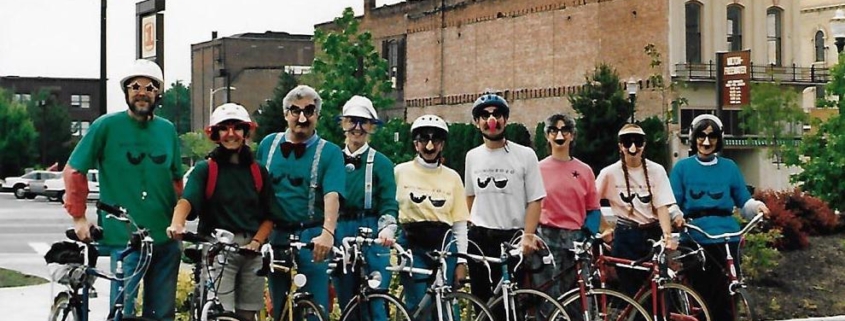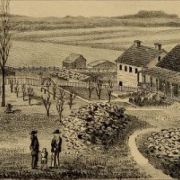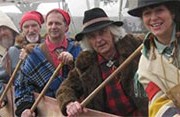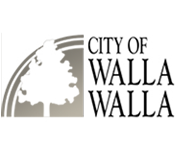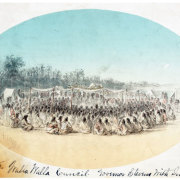Walla Walla 2020 and Beyond: Bike and hike
The following article is published in the Walla Walla Union-Bulletin’s series “Walla Walla 2020 and Beyond.” The full series of articles, published monthly, can be found at the UB’s site here.
Bike and hike
By DANIEL CLARK | Walla Walla 2020 and Beyond |
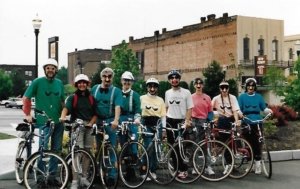
Walla Walla 2020 Precision Bike Team, from left: Dan Clark, Barbara Clark, Dennis Cannon, Sandra Cannon, Jeanne McMenemy, Wayne Chabre, Candace Rose, Sandra Shelin and Carolyn Seachris.
One of the key values motivating the initial members of Walla Walla 2020 at our founding in 1988 was restoration of a human scale of life in place of the automobile culture all around us. Walking and bicycling are quiet, healthful activities that bring us into contact with our friends and neighbors, expose us to fresh air, use very few resources, and are a joy in themselves.
Our walking or biking experience is enriched when streets and other facilities are designed with pedestrians, bicyclists, and transit in mind, as well as motor vehicles. To further these values, one of the Walla Walla 2020 committees formed in the spring of 1988 was our Bike and Hike Committee.
The following year the Downtown Foundation approached us with the idea of developing a community recreation trail with a trailhead in downtown Walla Walla at what has now become Heritage Park.
In response, we designed a loop trail from Rooks Park east of town to the Whitman Mission to the west that incorporated all the existing bike paths through the cities of Walla Walla and College Place. The loop included the three colleges, added several new dedicated links, and connected them all with the downtown trailhead through designated streets.
In 1991, the Walla Walla Trail Project was an approved partnership involving city, state, private, and federal funding sources.
In 1989, our committee had requested and the Walla Walla City Council approved the creation of a city Bicycle-Pedestrian Advisory Committee.
After studying other cities’ experiences, by 1992 the new city committee proposed a four-part program of making all streets safe for bicycles, developing and expanding bicycle routes, promoting increased bicycle use and safety, and coordinating our work with neighboring jurisdictions.
Among other projects, the new committee generated a grant to stripe bicycle lanes on several arterials, restripe several other arterials to provide wider curb lanes in order to better accommodate bicycles as well as motor vehicles, and for the painting of a center line on the Mill Creek Recreation Trail to improve conditions for multiple users.
The city committee also realized the importance of including College Place as well as the urbanized areas of Walla Walla County in a bicycle-pedestrian master plan for the entire Walla Walla area, and in 1992 proposed the establishment of a regional bicycle-pedestrian advisory committee. This was approved in 1993 by all three jurisdictions with the task of developing a master plan and to serve as an advisory committee for any jurisdiction not having its own committee.
Over the next seven years, the regional committee adopted its master plan, which was incorporated into each jurisdiction’s comprehensive plan, sponsored educational programs, monitored plans for bicycle and pedestrian facilities in new developments, and arranged for construction of additional bicycle-pedestrian trails.
Unfortunately, this regional committee is no longer functioning.
In addition to work with the city and regional committees, our Walla Walla 2020 Bike and Hike committee promoted transit shelters for pedestrians, as well as bike racks for cyclists. We also created and published walking maps of Walla Walla to help people find the best pedestrian routes and to calculate walking times, with funding support from local merchants. These maps are available at the Walla Walla City Hall and at the Visit Walla Walla booth on Main Street.
We have also successfully advocated for better intermodal connections and intercity bus service, and have sponsored several Energy Independence Days when we challenged employers to compete for the most employees walking, biking, busing or carpooling, plus a race between bikes and cars to see which could complete several errands faster during the lunch hour, and the bikes won!
Beyond advocacy, Walla Walla 2020 members formed a Precision Bicycle Drill Team that performed in local parades in order to promote the joy of bicycling, and later partnered with Valley Transit on a “Bikes and Buses are Beautiful” fair parade entry.
With the adoption of a complete streets policy by the city of Walla Walla recognizing that our transportation corridors are for everyone to be able to move safely, regardless of their mode of travel, together with our strong local transit system, more tree planting and shade, greater accessibility for people with visual handicaps or in wheelchairs, and the increase in local and visiting pedestrians and bicyclists throughout the city, we can expect more of us in the future to discover and enjoy these healthful, sociable, and friendly ways to get around.
We hope in addition for greater recognition of the fairness and importance of reliable funding to repair and maintain sidewalks throughout the city, and we look forward to the day that increasing numbers of us will recognize that investment in safe transportation for everyone is an investment in our own personal and economic well-being.

